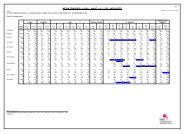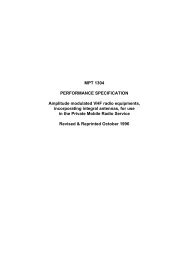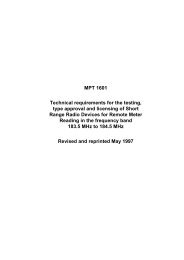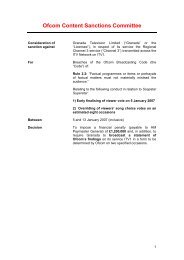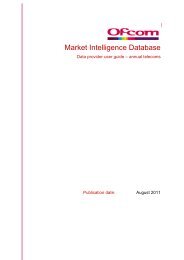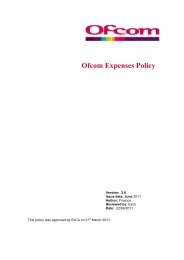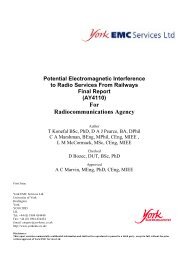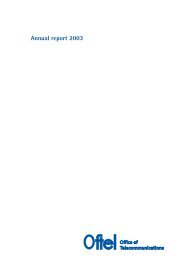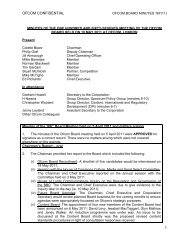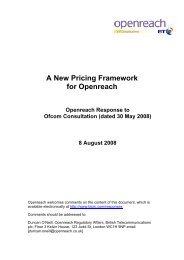WHAT CHILDREN WATCH - Ofcom
WHAT CHILDREN WATCH - Ofcom
WHAT CHILDREN WATCH - Ofcom
You also want an ePaper? Increase the reach of your titles
YUMPU automatically turns print PDFs into web optimized ePapers that Google loves.
20. Children in multichannel homes are more demanding of their television schedules,<br />
expecting a large number of different programmes, constantly changing. The research<br />
does not suggest that multichannel children are calling for greater diversity in the type of<br />
content they watch, but this may be a reflection of the fact that they are accustomed to<br />
the range of material they are offered.<br />
21. The issue of programme origination was raised with children, but was not found to<br />
be of significant interest, although many of the children spoke of their enjoyment of<br />
programmes produced in the United States. (The quantitative, BARB-based analysis does<br />
not distinguish country of origin.)<br />
22. Parents, especially parents in analogue terrestrial-only homes, are particularly keen that<br />
UK-originated programming should be available for their children to watch. They feel it<br />
is more authentic and culturally relevant and some felt that it had more of an<br />
educational value.<br />
23. The level of parental knowledge about the material being watched is mixed. While<br />
parents voice concerns, many admit that they police the viewing of their secondary<br />
school-age children less than their younger children.<br />
24. Parents expressed concern about certain aspects of taste and decency when talking about<br />
children’s programming. When talking about programming in general, and not<br />
programming targeted specifically at children, the use of swearing and offensive<br />
language was particularly disliked.<br />
25. Parents felt it was important to retain children’s programme provision on the analogue<br />
terrestrial channels, despite the alternative sources available on cable and satellite<br />
channels. They considered it essential that terrestrial broadcasters catered for the<br />
child audience.<br />
26. Analogue terrestrial parents, in particular, felt that the terrestrial channels offered a better<br />
range of children’s genres which included quality British made programmes.<br />
Additionally, parents who had not chosen to subscribe to satellite or cable channels said<br />
they would resent being forced to pay for additional services in order for their children<br />
to have something to watch.<br />
27. However, there was an acceptance that multichannel television opportunities were part<br />
of the television environment and that it was incumbent on broadcasters to continue to<br />
create programming that captured the attention and fed the demands of the child<br />
audience.<br />
What Children Watch 3




